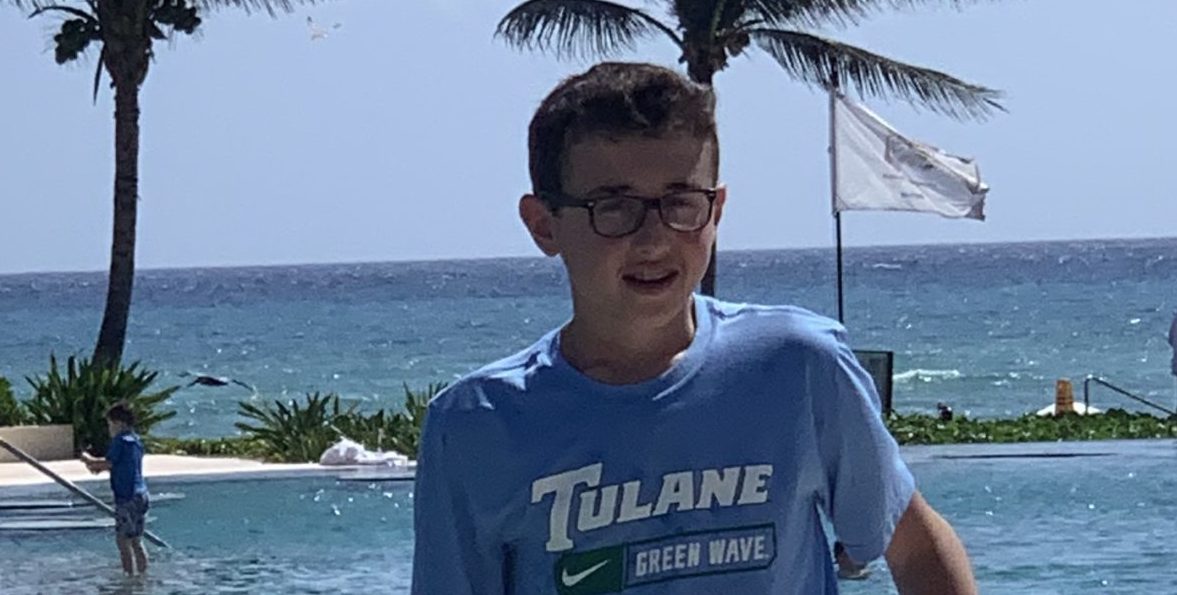Hundreds of you joined me and Cara Natterson this past week to discuss her new book, Decoding Boys, and the realities of parenting teen boys. We ventured out in the February New York City rain to gather together in school auditoriums and private apartments to learn more about how to our best parenting for our adolescent sons. We were there with our worries, our fears and our good intentions to better understand and support our children. We made ourselves open and vulnerable (thank you Brené) to hear what Cara had to teach us, which in essence is this:
Our society tells us that it’s OK for our teen boys to go quiet, to close their bedroom doors during adolescence and come out four years later. Cara urges us to ignore that message and instead, for our sons’ and our families sakes’, forge a new way forward. Cara is telling us (to knock first and then) open those bedroom doors so we can stay in connected to our teen sons.
At some points during the conversations this week, we got emotional, myself included, because while we were beginning to understand the challenges in raising teen boys, we weren’t sure what the way forward should look like. We were hearing about the fraught issues and profound concerns in raising children in 2020: everything from pornography to male body image issues to addiction. The more we heard about the realities in which our kids are living, the more remote a constructive path ahead could have felt. But Cara didn’t leave us sitting alone with our worry, which is why I love her work, rather she offered us some positive ways to move forward. She was consistently optimistic that we can all, in our individual ways, take steps forward buoyed by the science and the information she provides.
Understanding how to address difficult issues is where the rubber meets the road in parenting, particularly when the stakes get higher and the risks are bigger. Our conversations this week sounded a lot like: “How do I do that?” Or “What do I say?” Or “Where do I start?” For those of you who were able to join us in person, we gave some starting points for a variety of complex conversations with our kids, including the take-home assignment of having a conversation with them about pornography. The suggested prompt for parents heading home to their sons sounded something like: “I heard a speaker tonight who told us that the average age of boys’ exposure to pornography is 11 years old. I’m wondering what your experience has been?”
Many of you told me you were nervous to go home and have that conversation, but many of you did it anyway. I have heard from so many people who left our events, went home and spoke to their sons and daughters about pornography. For some of you, the conversations lasted a long time, for others it was a couple of minutes. I’m sure there are a few of you who got shut down when you tried, and that’s fine too, because starting the conversation is just the beginning. These complex conversations are like a spiral staircases that go up and up, we continue having them (or trying to have them) over time at higher and higher levels.
Those of you who couldn’t be with us this week (or who were with us, but have a memory as porous as mine) here are five nuggets to keep in mind when you approach hard conversations in your families.
- It’s great to start a conversation by coming in through the SIDE DOOR not the FRONT DOOR, for example: rather than “Tell me how much pornography you watch” try “I heard a speaker talk about porn and she said…” or “I read an article about porn and it mentioned…”
- Ask open-ended not YES/NO questions, for example: instead of “Have you seen pornography?” try “I’m wondering what you know about pornography?”
- Cara emphasizes that it’s critical to emphasize to our kids that when they share hard stuff with us, they’re not in trouble and that we are a judgment-free zone. We, as parents, are our kids trusted translators to help them make sense of what they see in the world. If we lead with judgment, they won’t come to us for a translation.
- If you mess up when you have these conversations (which you will), you get a do-over and it’s never too late to correct what you told your kids, even if it’s been a week or a year. Asking for a do-over sounds something like this: “I realized I made a mistake and didn’t give you accurate information, I’d like a do-over to explain it better.” There is nothing our children like better than when we admit to messing up.
- The more you have these challenging conversations with your kids, the stronger the muscle grows for having them. Exercising this skill (as daunting as it may be) will serve you and your child in countless ways.
When I asked my own teenage son what advice he would give to adults about parenting teenagers, he said: “Parents should know what their kids are really up to, listen to them without judgment and keep the lines of communication open.” I couldn’t have said it better myself. So gather up your courage, choose a topic that you have a sense might be relevant (pornography, low body image, masturbation, anxiety, substance abuse) and find a time when you’re driving in the car or walking side by side or loading the dishwasher with your kid. You will not cover everything all in one go and you may not get the ideal response, but give yourself credit for trying and don’t lose hope. If it doesn’t work, circle back and try it again another day. And if you feel like it, let me know how it goes, because even though it feels like we’re doing this alone, we are not alone in wanting to open the doors to reach our teen sons.







